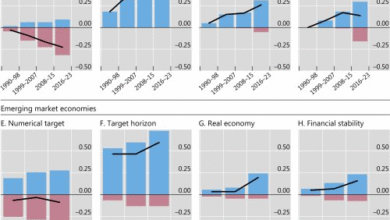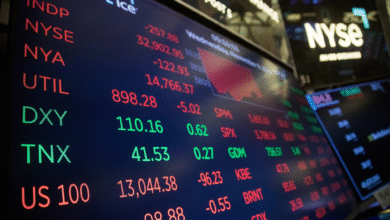Unicoin Fraud: SEC Charges Founder with $110M Scam

Unicoin fraud has emerged as a significant concern in the cryptocurrency world, particularly following allegations against its founder, Alexandre Konanykhin. The U.S. Securities and Exchange Commission (SEC) has leveled serious charges of securities fraud against Konanykhin, claiming he deceived over 5,000 investors by artificially inflating the value of Unicoin tokens. This dubious venture, which sought to connect its cryptocurrency to a purported portfolio of real estate assets, has drawn parallels to other notorious crypto fraud cases. As the SEC charges Unicoin, the potential fallout could echo that of other high-profile investor scams, leaving many to wonder about the implications for the broader crypto market. With reports of inflated financial claims and misleading investments, the Unicoin scam highlights the urgent need for regulatory scrutiny in the rapidly evolving world of digital currencies.
The Unicoin scandal has not only raised eyebrows but also sparked discussions about the integrity of emerging digital currencies and the potential for investor deception. Accusations against Alexandre Konanykhin surface alongside other troubling crypto fraud cases that have plagued the market. The recent SEC charges against Konanykhin and his team paint a bleak picture of misleading practices surrounding investment offerings that many believed to be legitimate. As the cryptocurrency landscape continues to grow, cases like Unicoin serve as cautionary tales for investors, signaling a pressing need for regulatory oversight and investor education. In the backdrop of such controversies, understanding the dynamic between innovation and accountability in the crypto sphere becomes increasingly essential.
The Allegations Against Unicoin and Alexandre Konanykhin
The SEC has recently brought charges against Alexandre Konanykhin, the founder of Unicoin, alleging that he orchestrated a massive investor scam amounting to $110 million. This has raised serious concerns among more than 5,000 investors who were allegedly misled into believing that their investments in Unicoin tokens were backed by substantial real estate assets. The SEC’s accusations claim that Unicoin’s leadership inflated the token’s value to attract unsuspecting investors, a strategy that can easily be categorized as fraud within the crypto market. The implications of these charges are significant, pointing to a larger trend of crypto fraud cases that have come under scrutiny in recent years, especially as regulatory bodies like the SEC ramp up their enforcement actions against deceptive practices in the industry.
This unfolding drama highlights not just the complications surrounding Unicoin but the broader issues relating to crypto investments that have increasingly plagued the industry. With terms like “Unicoin scam” now surfacing in media narratives, investors must be vigilant to protect themselves from potential fraud. As the SEC delves into the details of this case, they aim to clarify how the chain of deception led by Konanykhin and his team occurred, creating a cautionary tale for both investors and emerging cryptocurrency entrepreneurs.
Background of Alexandre Konanykhin and His Ventures
Alexandre Konanykhin is no stranger to controversy. Having established himself as a KGB-era banking oligarch in Russia, he learned the ropes of finance early in his career. Despite his wealthy beginnings and impressive portfolio, his journey to the United States was marked by dramatic turns, including claims of kidnapping and subsequent asylum requests. His entrepreneurial spirit eventually led him to launch Unicoin, an ambitious venture that initially appeared to intertwine with elements of popular culture, leveraging appearances on the ‘Unicorn Hunters’ reality series to gain credibility. However, as his financial practices come under the microscope, many are questioning whether his ambitions were rooted in genuine innovation or if they veiled a more nefarious scheme.
The rise and potential fall of Konanykhin paints a vivid picture of risk and reward in the volatile world of cryptocurrency. With a tumultuous past in a high-stakes environment, he captured the imagination of investors with grand promises. Yet, the SEC’s intervention signals that the façade might not hold against scrutiny, raising red flags about the integrity of Unicoin and its operations. Observers will be closely watching for developments as the SEC continues to investigate the money trail and the legitimacy of the assets purportedly backing Unicoin tokens.
The Role of the SEC in Regulating Crypto Frauds
The U.S. Securities and Exchange Commission (SEC) plays a critical role in regulating the securities industry, and its move against Unicoin illustrates its commitment to uphold investor protection in the face of an ever-evolving cryptocurrency market. With allegations of securities fraud against Konanykhin and his associates, the SEC seeks to clarify the legal landscape for cryptocurrency offerings. The SEC’s scrutiny is vital, as many investors are often unaware of how to distinguish between legitimate investments and potential scams. The rise of crypto fraud cases, like that of Unicoin, has led to increased calls for regulation and oversight, especially as technology outpaces traditional compliance frameworks.
As the SEC navigates this landscape, its actions against Unicoin are not just about one company, but signify a broader initiative to usher in transparency and accountability within the crypto space. By protecting investors and pursuing legal action against fraud, the SEC aims to deter other potential scams and foster a more trustworthy investment environment in the realm of digital assets. This case underscores the importance of regulatory oversight as the cryptocurrency atmosphere continues to evolve and develop.
Implications of the Unicoin Fraud Case
The implications of the allegations against Unicoin and its founder are significant for the cryptocurrency industry. With the SEC alleging that Konanykhin defrauded investors by presenting false information about the company’s assets, this case may set a precedent for how cryptocurrency projects operate in the future. Investors will be more cautious, and potential founders will need to ensure that their disclosures are transparent and truthful. The fallout from these charges could foster an environment where ethical investment practices emerge as the gold standard, as seen in more traditional sectors.
Moreover, this case creates urgency for regulatory bodies to establish clearer guidelines for crypto ventures. The reality that a high-profile figure like Konanykhin can attract thousands of investors while allegedly peddling a scam underscores the need for consumer education and enhanced scrutiny of all crypto offerings. As individuals continue to invest in digital currencies, the need for informed decision-making becomes increasingly important, which might spur further regulatory reform to better protect investors.
Monitoring Crypto Investments: Best Practices for Investors
In light of the allegations surrounding Unicoin and similar cases, it becomes imperative for investors to adopt best practices when engaging with cryptocurrency investments. To mitigate risks associated with potential scams, thorough research into the project, its leadership, and the technology behind the tokens is essential. Investors should look for clear and transparent disclosures that outline how funds will be used and what the investments are backed by, allowing them to establish a better understanding of any opportunities that arise.
Additionally, staying informed about regulatory updates and understanding the legal framework surrounding cryptocurrencies can protect investors from falling prey to fraud. The evolving nature of cryptocurrency regulations means that new laws can have significant impacts on how projects operate. Investors who remain vigilant and educate themselves about market trends will be better positioned to discern promising opportunities from potential pitfalls, preserving their assets and enhancing their investment strategies.
The Consequences for Unicoin Investors
The charges against Unicoin carry serious consequences for its investor base, particularly for those who believed they were making sound financial choices by investing in what they thought were legitimate tokens. As the SEC continues to investigate allegations of misinformation and deceit, many investors may face potential losses if it is determined that Unicoin engaged in fraudulent activities. The future of their investments hangs in the balance as legal proceedings unfold, leaving many individuals in dire situations without clear recourse.
Furthermore, the Unicoin case acts as a cautionary illustration of the unpredictability inherent in cryptocurrency investment. With numerous scams littering the internet, investors can easily find themselves vulnerable. Understanding the possible repercussions of participating in projects under scrutiny can prompt investors to take more deliberate steps to safeguard their funds and contribute to discussions advocating for enhanced consumer protections within the crypto industry.
The Landscape of Cryptocurrency and Ethical Considerations
As the narrative surrounding Unicoin unfolds, it brings forth crucial ethical considerations within the rapidly evolving world of cryptocurrency. The honesty and integrity of crypto projects must be called into question as cases of fraud become more prevalent. With more individuals investing in digital assets, the ethical responsibilities of founders and executives come under scrutiny. Establishing a strong ethical framework becomes vital to ensure that the interests of investors are prioritized above all, preventing the development of similar scams.
Moreover, the potential for technology to create a more transparent investment landscape should not be overlooked. Blockchain technology, which powers most cryptocurrencies, has the potential to enhance trust through traceable and immutable records of transactions. As fraudulent cases like that of Unicoin draw attention to the darker sides of cryptocurrency investing, promoting an ethical approach could lead to transformative changes within the industry, benefiting both investors and innovators alike.
Securing Legal Representation: A Strategy for Investors
Given the challenges posed by potential losses in cases like those surrounding Unicoin, many investors are encouraged to consider securing legal representation. In the event that they need to navigate claims or pursue consequences against deceptive practices, having a legal expert can significantly enhance their chances of achieving satisfactory outcomes. Skilled attorneys can assist investors in understanding their rights and provide guidance on potential pathways to recoup losses suffered from fraudulent investments.
Moreover, investors should be aware of class-action lawsuits that may emerge as a result of widespread investor dissatisfaction with Unicoin’s operations. Legal representation can become instrumental in joining forces with other affected investors, creating a collective strategy that exponentially increases the chances of successful legal recourse. Understanding the legal implications and options available helps empower investors to take informed actions while adapting to the challenges that have emerged from the Unicoin saga.
Future Prospects for Cryptocurrency Investments After Unicoin
As the dust begins to settle after the unfolding events surrounding Unicoin, the future of cryptocurrency investments remains uncertain. The potential fallout from this case may instill fear among potential investors, leading to hesitation in venturing into the market. However, it is equally vital to recognize that the legitimate opportunities in cryptocurrency can thrive even in the face of adversity. This duality creates a pressing need for the community to adapt and evolve in light of recent challenges.
Additionally, future prospects may involve increased regulatory measures, enhanced investor education, and a push for greater accountability among crypto projects. As the industry grapples with the implications of crimes like the Unicoin fraud, investors and regulatory bodies will collaborate to forge an atmosphere where authenticity markets thrive. Together, they can work towards building confidence, restoring trust, and encouraging ethical innovation that benefits all stakeholders in the cryptocurrency landscape.
Frequently Asked Questions
What is the Unicoin fraud case involving Alexandre Konanykhin?
The Unicoin fraud case pertains to allegations against Alexandre Konanykhin, the founder of Unicoin, who has been charged by the SEC with securities fraud for misleading over 5,000 investors. He allegedly inflated the value of Unicoin tokens and falsely claimed these tokens would be backed by significant real estate assets.
What are the SEC charges related to Unicoin?
The SEC charges against Unicoin involve accusations of securities fraud, including claims that the company misled investors about the backing of its tokens with real assets and exaggerated the actual funds raised from token sales, which were reported as $3 billion, but the SEC contends is only around $110 million.
How does the Unicoin scam impact investors?
The Unicoin scam has potentially harmed thousands of investors by promising high returns on tokens that were misrepresented in value and backing. Investors were lured into believing they were partaking in a legitimate crypto opportunity backed by substantial assets, while the truth was that the actual value was greatly inflated.
Who else is implicated in the Unicoin fraud alongside Alexandre Konanykhin?
In addition to Alexandre Konanykhin, other executives involved in the Unicoin fraud case include Silvina Moschini, the former president, and Alex Dominguez, the former chief investment officer. Both are accused of participating in the scheme that defrauded investors.
What should potential cryptocurrency investors learn from the Unicoin fraud case?
Potential cryptocurrency investors should be cautious and conduct thorough research to verify claims made by companies regarding asset backing and the legitimacy of investments. The Unicoin fraud case serves as a reminder to scrutinize promises of high returns and ensure that any investment is backed by actual, verifiable assets.
What measures is Alexandre Konanykhin taking in response to the SEC charges against Unicoin?
Alexandre Konanykhin has publicly denounced the SEC charges as false and is prepared to defend himself in court. He claims the allegations represent an abuse of power and intends to fight for the vision of Unicoin and its community.
What was the marketing strategy behind Unicoin that led to accusations of fraud?
Unicoin’s marketing strategy included aggressive advertising campaigns across various platforms, claiming registration with the SEC and promoting the idea that the tokens were backed by billions in real estate and equity. This led to accusations of misleading marketing practices that ultimately fueled the allegations of fraud.
What does the Unicoin fraud case highlight about the cryptocurrency industry?
The Unicoin fraud case highlights the need for regulatory scrutiny within the cryptocurrency industry. It emphasizes the risks associated with crypto investments and the importance of proper compliance and transparency to protect investors from fraudulent schemes.
What legal consequences could Alexandre Konanykhin face due to the Unicoin fraud?
If found guilty of securities fraud in the Unicoin case, Alexandre Konanykhin could face significant penalties, including hefty fines and potential imprisonment, depending on the severity of the offenses and the court’s determination.
| Key Points | Details |
|---|---|
| Case Overview | The SEC has charged Alexandre Konanykhin, founder of Unicoin, with securities fraud over allegations of swindling investors. |
| Fraudulent Claims | Unicoin tokens were allegedly marketed as being backed by real estate and valuable assets, which the SEC claims were vastly inflated. |
| SEC Allegations | Over 5,000 investors were misled, and the raised funds were reported at $3 billion, but the actual figure was only around $110 million. |
| Background on Konanykhin | Konanykhin, a former Russian oligarch, has a history of legal troubles and once put a bounty on Vladimir Putin’s head. |
| Unicorn Hunters Show | Konanykhin’s ventures include a reality television show where startups receive funding from celebrity investors. |
| Response to SEC | Konanykhin has publicly denied the SEC’s accusations, stating that they intend to contest the charges in court. |
Summary
Unicoin fraud has emerged as a significant case in the realm of cryptocurrency, highlighting how easily unsuspecting investors can be misled. Alexandre Konanykhin, the founder of Unicoin, has been charged with $110 million in securities fraud by the SEC, accused of deceiving over 5,000 investors about the true value of his company’s tokens. As the legal proceedings unfold, this case serves as a stark reminder of the importance of regulatory oversight in the fast-evolving crypto landscape.



